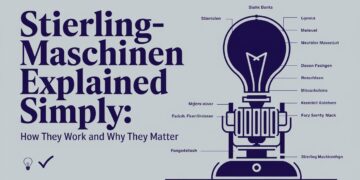Sustainable office fit-outs have become an essential aspect of modern workspace design, reflecting a growing awareness of environmental impact and a commitment to reducing carbon footprints. As businesses continue to seek ways to minimise their ecological footprints while fostering productivity and well-being, the role of office furniture in these designs has never been more important. Corner desks, often overlooked in favour of more traditional desk setups, are proving to be an excellent solution in sustainable office fit-outs, offering multiple environmental and functional benefits.
Incorporating sustainable office furniture into the design of a workspace isn’t just about choosing products that are eco-friendly or made from recycled materials; it’s about creating spaces that reduce waste, promote well-being, and encourage optimal use of space. Corner desks are an ideal solution to meet these requirements, as they are versatile, efficient, and can be crafted from sustainable materials. They are particularly valuable in the context of office fit-outs, where space utilisation and environmental considerations play a significant role.
Office furniture plays a critical role in shaping the functionality, aesthetic, and overall sustainability of an office environment. Corner desks, when chosen thoughtfully, can offer several advantages in a sustainable office fit-out. This article will explore the benefits of corner desks in terms of space optimisation, resource conservation, and energy efficiency, illustrating their growing importance in the future of office design.
Space Optimisation: Maximising Efficiency
One of the most significant advantages of incorporating corner desks into a sustainable office fit-out is their ability to optimise space. In smaller offices, where every inch of space is valuable, corner desks offer an efficient solution. These desks make the most of underutilised corners, creating additional workspace without crowding the room. By utilising corners, businesses can create more open, airy environments, enhancing the overall flow and functionality of the space.
A well-designed corner desk can be a game-changer in both home and commercial offices, especially in areas with limited square footage. When placed strategically, corner desks allow for the inclusion of more flexible workstations and reduce the need for multiple pieces of office furniture. By reducing the number of furniture items, businesses can decrease overall production costs, as well as the environmental impact associated with manufacturing, transportation, and disposal.
The space-saving capabilities of corner desks also allow for better workflow, with employees able to spread out their materials and equipment without feeling cramped. Additionally, many corner desks come with integrated storage solutions, further reducing the need for additional filing cabinets or storage units. The combined effect of these design elements results in more efficient use of office space, making corner desks a practical and sustainable choice for office fit-outs.
Sustainable Materials: Choosing the Right Corner Desk
When it comes to sustainable office fit-outs, the materials used in office furniture are a key consideration. Corner desks can be crafted from a variety of eco-friendly materials that minimise environmental impact while still offering durability and aesthetic appeal. Materials such as reclaimed wood, bamboo, and recycled metals are increasingly being used in the design of modern office furniture. These materials are not only sustainable but also lend a unique, natural look to office spaces.
Reclaimed wood, for example, is a popular choice for corner desks as it reduces the demand for virgin timber, thereby conserving forests and reducing deforestation. Bamboo, a highly renewable resource, is another excellent option for sustainable office furniture. It grows rapidly and can be harvested with minimal environmental impact, making it a highly sustainable alternative to traditional hardwoods.
In addition to the materials themselves, businesses can also look for manufacturers who employ eco-friendly production practices. This includes minimising waste during manufacturing, using low-impact finishing processes, and ensuring that furniture is designed with longevity in mind. Choosing corner desks from companies that prioritise these practices can significantly reduce the environmental impact of an office fit-out.
Promoting Employee Well-being and Productivity
Sustainable office fit-outs are not just about conserving resources—they are also about creating environments that promote employee well-being and productivity. The design of a workspace has a direct impact on employees’ physical and mental health, which in turn influences their performance. Corner desks play an important role in this by offering ergonomic designs that support healthy working postures.
By offering a dedicated, well-lit, and organised workspace, corner desks can contribute to improved focus and reduced distractions. The layout of corner desks also encourages better posture, as they typically provide more room for employees to adjust their seating position and spread out their work materials. This can reduce the risk of strain and discomfort associated with poor ergonomics, such as back pain, neck strain, and repetitive stress injuries.
Moreover, the spacious nature of corner desks allows for a more personalised workspace. Employees can incorporate plants, personal items, or organisational tools that help them feel comfortable and motivated. This sense of ownership and personalisation has been shown to improve job satisfaction and reduce stress, ultimately contributing to a more positive and productive workplace.
Energy Efficiency and Natural Light
Sustainable office fit-outs also consider energy efficiency, and corner desks can contribute to this goal by maximising the use of natural light. Positioning desks near windows or light sources can reduce the need for artificial lighting during the day, leading to energy savings. This is particularly important in offices where electricity consumption is a significant part of operational costs.
By allowing for better placement of desks, corner desks enable office designers to position workstations in areas that benefit from natural light. The orientation of the desk and workspace can help employees make the most of daylight hours, reducing reliance on overhead lighting and contributing to overall energy savings.
Additionally, many corner desks are designed with built-in cable management systems that help reduce the need for excessive power strips or tangled wires. This contributes to a cleaner, more organised workspace, which can improve both aesthetics and functionality. The overall result is a workspace that is not only more efficient in terms of space but also in terms of energy usage.
Long-Term Durability and Minimal Waste
Another important aspect of sustainability is the longevity of office furniture. Corner desks, when constructed from high-quality, durable materials, can last for many years with minimal wear and tear. This reduces the need for frequent replacements, which in turn reduces waste and the environmental impact of manufacturing and disposing of old furniture.
Sustainable office furniture manufacturers often focus on creating products that are built to last, ensuring that they can withstand the demands of a busy office environment without compromising on style or function. By investing in durable corner desks, businesses can avoid the need for frequent furniture replacements, contributing to a more sustainable long-term office fit-out.
Conclusion
Corner desks are an integral component of sustainable office fit-outs, offering a range of benefits that contribute to both environmental sustainability and employee well-being. Through space optimisation, the use of sustainable materials, energy efficiency, and the promotion of healthy working environments, corner desks help create office spaces that are not only functional but also eco-friendly.
As businesses continue to embrace sustainability in their operations, corner desks provide a practical and efficient solution that meets the growing demand for both environmentally responsible and productive office designs. By incorporating these versatile pieces of office furniture into office fit-outs, companies can reduce their carbon footprints, improve employee satisfaction, and create workspaces that are truly sustainable for the future.
















































